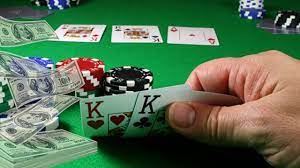Understanding your opponents playing styles is crucial when playing poker, enabling you to narrow their range and make more profitable decisions. This can be accomplished in various ways such as watching how they bet or by observing bet sizing patterns or analyzing actions taken against them.
Implementing advanced poker strategies will help you enhance your results and win more pots. Here are a few pointers to help get you going.
Post-flop play
Flop play is an integral component of poker strategy. A flop can change the strength of an opponent’s hands or enhance your own, making important decisions at shallow stack depths or nearing tournament money bubbles much harder without considering this important consideration.
Flop analysis involves looking at the suit and value of community cards, taking note of your opponents hole cards, and calculating how strong or weak your draw against their range is. Seasoned players typically need two seconds to process this information; watching how quickly others are studying the flop can also provide invaluable information.
Positional adjustments after the flop are of equal importance. By acting later in position, opponents won’t be able to bluff with their best draws as easily and you can control the pot by checking. This makes balancing value bets with bluffs easier while it is important that opponents know whether you will call their bets when betting against them.
Betting intervals
Crushing opponents at poker is a complex endeavor requiring skill, strategy and psychological awareness. Experienced players are better at seeing profitable spots than novices do and employ exploitative strategies which make them hard to read; honing hand reading skills further allows advanced players to turn opponents’ weak value hands into large winnings.
Betting intervals allow you to determine how much to bet in each hand. They can either be linear or calculated using multiples of your betting size; with the latter usually recommended for heads-up play. When betting intervals are used in heads-up play, progressions in betting sizes enable you to gradually increase aggression while still staying within the confines of your bankroll.
Keep in mind that these advanced poker strategies won’t guarantee success against even the best opponents, but will increase your “redline”, or amount won outside showdown hands.
Pre-flop play
Pre-Flop Round of Poker | Crush The Pot! Pre-flop rounds of poker are among the most critical stages in any game. When making more positive expected value decisions in this round, chances of success increase significantly; however there may be many ways in which opponents deviate from balanced play during pre-flop.
Acknowledging opponents’ ranges during pre-flop rounds is key for making mathematically sound decisions and increasing win rates and profits over time. To start off, categorize opponents according to number of hands played and playing style; this will enable you to read their ranges more effectively street by street and make better decisions. Once this information is in hand, making more aggressive plays can increase long-term success at the table by opening larger pots with bigger prizes while keeping more opponents entertained for longer games – but it may require considerable study and review before finally being implemented successfully.
Balancing your range
Balance your range to become one of the key skills in poker. Doing this makes it harder for opponents to read your betting and exploit your strategies, while simultaneously making your bluffs more effective by creating value bet appearances, and maximising value bet returns.
Balance your range by employing multiple bet sizes. Aim for equal amounts of small bets and large ones in your range to prevent opponents from calling your bluffs with strong hands, taking pots that would otherwise belong to you.
Your range should also be adjusted to match the tendencies of your opponent, for instance if they tend to play tight preflop. By exploiting them by overfolding against them in certain instances, you could win more money than by just calling their aggression every time – particularly useful against tight regs at lower stakes tables.

